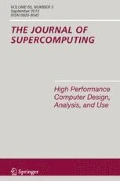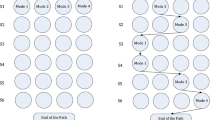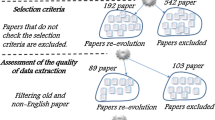Abstract
Directed acyclic graph (DAG) scheduling is a well-known problem, because a DAG can be used to describe a wide range of complex applications, including scientific applications and parallel computing jobs. Most DAG scheduling algorithms were proposed to minimize the job makespan (i.e., execution time) on a multiprocessor computer or cluster. However, as the cost-driven public cloud services have become an attractive and popular platform for providing computing resources, cost minimization emerges as a new critical issue. Therefore, the objective of this work is to propose and solve the cost optimization problem for scheduling DAGs on an IaaS cloud platform where task scheduling must cope with resource provisioning to achieve the optimal solution. In this paper, we proposed both optimal and heuristic scheduling algorithms, and we evaluated them across a variety of DAGs using the price model from EC2. Comparing to other cost-oblivious DAG schedules that aim to minimize makespan or resource usage, the results show that our cost-aware heuristic algorithm can reduce cost by 20–50 % and achieve a cost within x1.16 of the optimal one.












Similar content being viewed by others
References
Adam TL, Chandy KM, Dickson JR (1974) A comparison of list schedules for parallel processing systems. Commun ACM 17(12):685–690
Ahmad I, Yu-Kwong K (1998) On exploiting task duplication in parallel program scheduling. IEEE Trans Parallel Distrib Syst 9(9):872–892
Almeida VAF, Vasconcelos IMM, Arabe J, Menasce D (1992) Using random task graphs to investigate the potential benefits of heterogeneity in parallel systems. In: ACM/IEEE conference on supercomputing, pp 683–691
Arabnejad H, Barbosa J (2014) List scheduling algorithm for heterogeneous systems by an optimistic cost table. IEEE Trans Parallel Distrib Syst 25(3):682–694
Armbrust M, Fox A, Griffith R, Joseph AD, Katz R, Konwinski A, Lee G, Patterson D, Rabkin A, Stoica I, Zaharia M (2010) A view of cloud computing. Commun ACM 53(4):50–58
Bajaj R, Agrawal D (2004) Improving scheduling of tasks in a heterogeneous environment. IEEE Trans Parallel Distrib Syst 15(2):107–118
Bittencourt L, Madeira E (2011) HCOC: a cost optimization algorithm for workflow scheduling in hybrid clouds. J Internet Serv Appl 2(3):207–227
Canon L, Jeannot E (2010) Evaluation and optimization of the robustness of dag schedules in heterogeneous environments. IEEE Trans Parallel Distrib Syst 21(4):532–546
Casavant TL, Kuhl JG (1988) A taxonomy of scheduling in general-purpose distributed computing systems. IEEE Trans Softw Eng 14(2):141–154
Chen G (2010) Simplified particle swarm optimization algorithm based on particles classification. Int Conf Nat Comput 5:2701–2705
Chen H, Shirazi B, Kavi K, Hurson A (1993) Static scheduling using linear clustering and task duplication. In: Parallel and distributed computing and systems, pp 285–290
Colin J, Chretienne P (1991) C.P.M. scheduling with small computation delays and task duplication. Oper Res 39:680–684
Cordeiro D, Mounié G, Perarnau S, Trystram D, Vincent J-M, Wagner F (2010) Random graph generation for scheduling simulations. In: Proceedings of the 3rd international ICST conference on simulation tools and techniques, pp 60:1–60:10
Darbha S, Agrawal DP (1998) Optimal scheduling algorithm for distributed-memory machines. IEEE Trans Parallel Distrib Syst 9(1):87–95
Dean J, Ghemawat S (2008) MapReduce: simplified data processing on large clusters. Commun ACM 51(1):107–113
Fujimoto N, Hagihara K (2003) Near-optimal dynamic task scheduling of precedence constrained coarse-grained tasks onto a computational grid. In: Proceedings of international conference on parallel and distributed computing, pp 80–87
Graham R, Lawler L, Lenstra J, Kan A (1979) Optimization and approximation in deterministic sequencing and scheduling: a survey. Ann Discrete Math 5:287–326
Hu T (1961) Parallel sequencing and assembly line problems. Oper Res 9(6):841–848
Juve G, Chervenak A, Deelman E, Bharathi S, Mehta G, Vahi K (2013) Characterizing and profiling scientific workflows. Future Gener Comput Syst 29(3):682–692
Kvas A, Ojstersek M, Zumer V (1994) Evaluation of static program allocation schemes for macro data-flow computer. In: Proceedings of the 20th EUROMICRO conference, pp 573–580
Kwok Y-K, Ahmad I (1996) Dynamic critical-path scheduling: an effective technique for allocating task graphs to multiprocessors. IEEE Trans Parallel Distrib Syst 7(5):506–521
Mao M, Humphrey M (2011) Auto-scaling to minimize cost and meet application deadlines in cloud workflows. ACM/IEEE Conf Supercomput 49(1–49):12
Olston C, Reed B, Srivastava U, Kumar R, Tomkins A (2008) Pig latin: a not-so-foreign language for data processing. In: ACM SIGMOD, pp 1099–1110
Radulescu A, van Gemund A (2000) Fast and effective task scheduling in heterogeneous systems. In: Proceedings of 9th heterogeneous computing workshop, 2000 (HCW 2000), pp 229–238
Raju R, Amudhavel J, Pavithra M, Anuja S, Abinaya B (2014) A heuristic fault tolerant “MapReduce framework for minimizing makespan in hybrid cloud environment. In: International conference on green computing communication and electrical engineering (ICGCCEE), pp 1–4
Rodriguez MA, Buyya R (2014) Deadline based resource provisioningand scheduling algorithm for scientific workflows on clouds. IEEE Trans Cloud Comput 2(2):222–235
Shirazi B, Wang M, Pathak G (1990) Analysis and evaluation of heuristic methods for static task scheduling. J Parallel Distrib Comput 10(3):222–2232
Thusoo A, Sarma JS, Jain N, Shao Z, Chakka P, Anthony S, Liu H, Wyckoff P, Murthy R (2009) Hive: a warehousing solution over a Map-Reduce framework. Proc VLDB Endow 2(2):1626–1629
Topcuouglu H, Hariri S, Wu M-Y (2002) Performance-effective and low-complexity task scheduling for heterogeneous computing. IEEE Trans Parallel Distrib Syst 13(3):260–274
Wu M-Y, Gajski D (1990) Hypertool: a programming aid for message-passing systems. IEEE Trans Parallel Distrib Syst 1(3):330–343
Yang C-H, Lee P, Chung Y-C (2007) Improving static task scheduling in heterogeneous and homogeneous computing systems. In: ICPP, pp 45–45
Yang T, Gerasoulis A (1994) DSC: scheduling parallel tasks on an unbounded number of processors. IEEE Trans Parallel Distrib Syst 5(9):951–967
Yu WH (1984) Lu decomposition on a multiprocessing system with communications delay, Ph.D. thesis. University of California, Berkeley. AAI8427141
Yu Y, Isard M, Fetterly D, Budiu M, Erlingsson U, Gunda PK, Currey J (2008) DryadLINQ: a system for general-purpose distributed data-parallel computing using a high-level language. In: Proceedings of the USENIX conference on operating systems design and implementation, pp 1–14
Zaharia M, Chowdhury M, Franklin MJ, Shenker S, Stoica I (2010) Spark: cluster computing with working sets. In: Proceedings of the 2Nd USENIX conference on hot topics in cloud computing, HotCloud’10. USENIX Association, Berkeley, p 10
Zhang C, De Sterck H (2010) Cloudbatch: a batch job queuing system on clouds with hadoop and hbase. In: IEEE international conference on cloud computing technology and science (CloudCom), pp 368–375
Zhou AC, He B (2014) Transformation-based monetary cost optimizations for workflows in the cloud. IEEE Trans Cloud Comput 2(1):85–98
Author information
Authors and Affiliations
Corresponding author
Rights and permissions
About this article
Cite this article
Convolbo, M.W., Chou, J. Cost-aware DAG scheduling algorithms for minimizing execution cost on cloud resources. J Supercomput 72, 985–1012 (2016). https://doi.org/10.1007/s11227-016-1637-7
Published:
Issue Date:
DOI: https://doi.org/10.1007/s11227-016-1637-7




